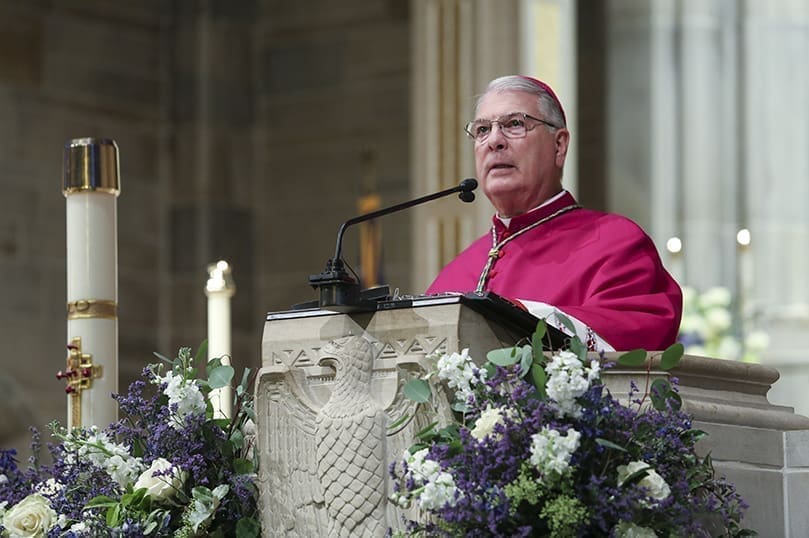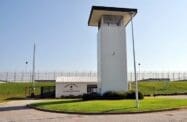 Photo By Michael Alexander
Photo By Michael AlexanderAtlanta
Archbishop Hartmayer offers statement on death penalty, prayers for victims at vigil
By NICHOLE GOLDEN, Editor | Published September 22, 2020 | En Español
ATLANTA–Archbishop Gregory J. Hartmayer, OFM Conv., participated in an online prayer vigil Sept. 22 against federal executions by offering a statement on the death penalty and prayers for the victims and their loved ones.
The Catholic Mobilizing Network vigil was Tuesday at 2 p.m. with another scheduled for Thursday, Sept. 24. The vigils coincide with the scheduled federal execution dates of William LeCroy and Christopher Vialva. LeCroy was sentenced to death for the murder of JoAnn Lee Tiesler of Gilmer County, Georgia in 2001.
On July 14, the U.S. Department of Justice resumed federal executions for the first time in 17 years. The executions are scheduled to take place at the U.S. Penitentiary in Terre Haute, Indiana.
The statement of Archbishop Hartmayer, regarding the planned execution of William Emmett LeCroy, follows:
“Our Catholic faith calls us to live as people of justice and mercy and to respect the sanctity of life. We believe in the inherent dignity of all human persons because we have all been created in the image and likeness of God. We have all been redeemed by the life, death and resurrection of Jesus Christ. The Catechism of the Catholic Church states that the death penalty is ‘inadmissible because it is an attack on the inviolability and dignity of the person’ (2267).
The death penalty goes against the church’s pro-life teaching rooted in the inherent dignity of every human person. It jeopardizes innocent lives since the justice system has wrongfully convicted innocent people. An innocent person cannot be revived if he or she is later exonerated. The system disproportionately puts at risk those with mental illness, intellectual disabilities and people of color. The use of the death penalty reflects the need for sweeping criminal justice reform.
The death penalty has negative economic and social impacts in our society. First, the legal process for a capital case, from the trial, incarceration and multiple appeals to the execution requires larger government and private financial resources than the process of having a person sentenced to life in prison without parole. Also, the lengthy appeal process can deny the victim’s family the opportunity to heal and properly grieve the loss of their loved ones as they have to continuously revisit the tragic events that forever changed their lives. Finally, a convict who is killed never has an opportunity to repent or seek reconciliation with those he or she may have hurt. We must always leave open the door for redemption and rehabilitation.
In 2001, Mr. William Emmett LeCroy committed a horrible crime by taking the life of Ms. Joann Lee Tiesler. Today, I pray for her eternal rest. I pray and grieve with the family of Ms. Tiesler and offer them my deepest sympathy. I acknowledge that our country’s justice system has the right and the duty to seek justice for her, but the death penalty is not necessary for the accomplishment of justice.
I pray for Mr. LeCroy because he is a child of God. I pray that his life be spared so that he can seek ways to repent and contribute to society even while incarcerated. Like that of every human person, Mr. LeCroy’s life has worth and dignity. I pray that in his repentance, just like St. Dismas, the penitent thief on the cross, he will be with Jesus in paradise. I also pray that his family will find their way to peace.
I pray for those government employees who are involved in carrying out the death penalty.
I pray that our judicial and political system may find a way to end the death penalty, so as to achieve a measure of justice that does not involve the violence of execution of a fellow human being.”

